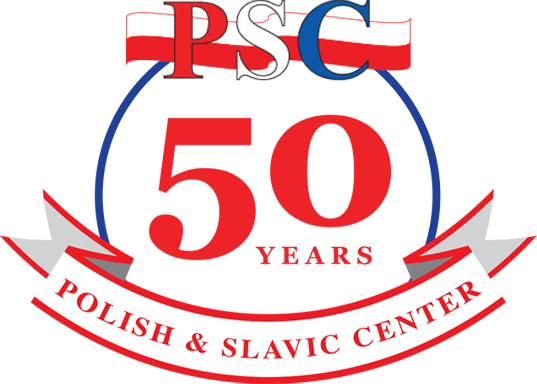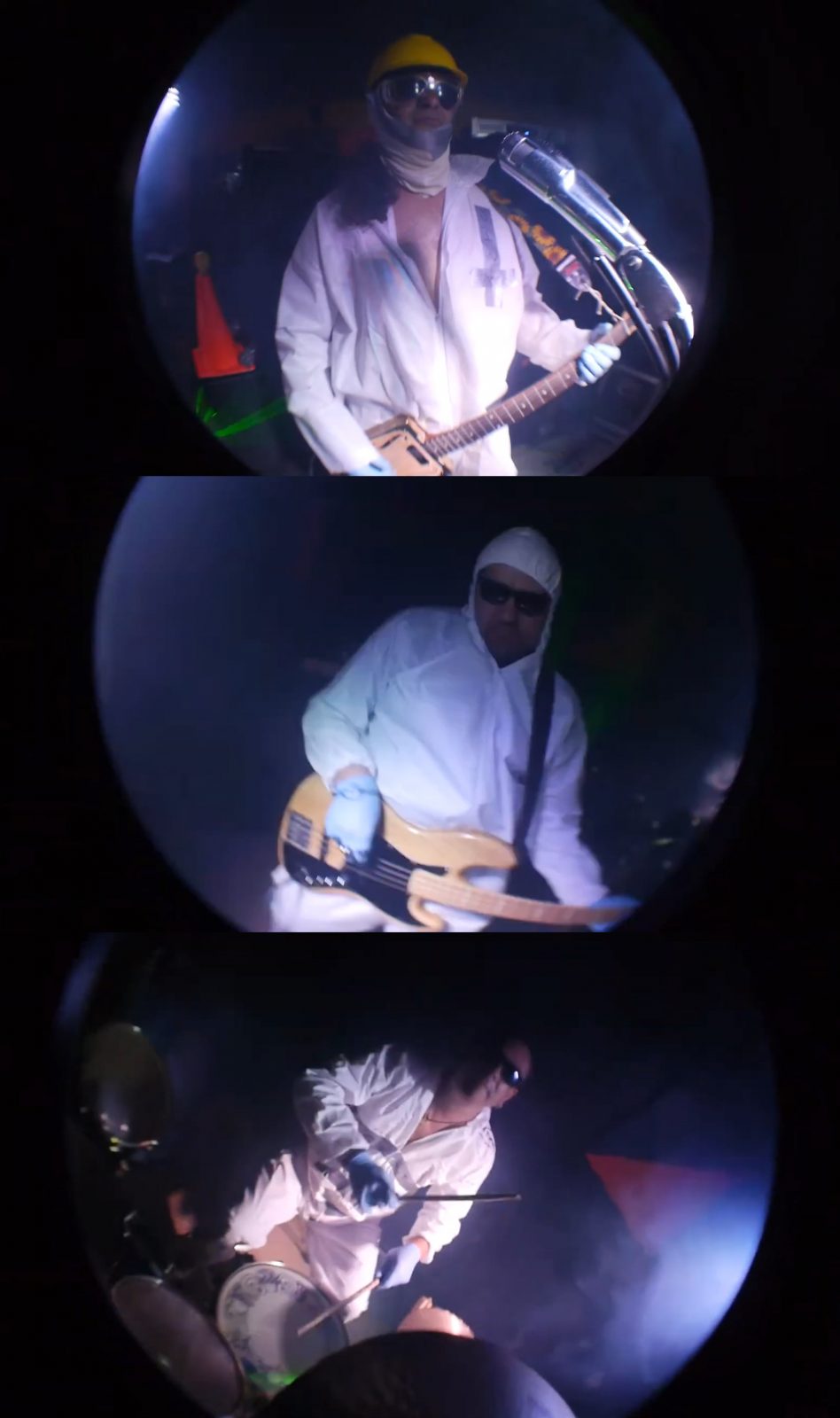Each of our concerts is unique.
How did you become interested in music in your life?
I think it happened similarly to many others at the time. Gdynia, the late 1970s, and I had just finished elementary school and was about to start high school. In the apartment building where I lived, I had a few older friends. One of them went to southern Poland for the summer to earn some money, I think, working for the Volunteer Labor Corps (OHP) or something similar. There, he met someone who played guitar, and he was so fascinated by it that he bought his own guitar with the money he earned and returned to Gdynia with it. He already knew how to play a few simple songs, from what I remember, including “Wish You Were Here” by Pink Floyd. He came with that guitar, and you could say he infected everyone in the neighborhood. I remember it was summer break, we were sitting on a bench outside the apartment building, and everyone wanted to play, and I had a good ear for music, so I quickly started picking up the basics.
This apparently influenced your further education.
Playing was so exciting that instead of attending a regular high school, I chose to study at an electrical engineering school, primarily so I could build my own amplifier. On the very first day at school, we were shown the music studio, where I acquired a Defil bass guitar. It wasn’t fully functional, so I promised to take it home and fix it. So I had my first instrument, and in those days, it wasn’t as easy to find as it is today. Very quickly, we started rehearsing in apartments or in the basement of an apartment building. A friend would bang on some laundry tubs, and the guitarists, including me, would plug into a Polish Jowita radio, which we used as an amplifier. We played whatever we could find. Mostly our own stuff, because we weren’t really good enough to copy other people’s stuff yet. But I remember the enthusiasm was enormous.
So you could say that from the very beginning you focused on your own work.
Yes, and that hasn’t changed to this day. Of course, over time, this basement shredding wasn’t enough for me. I also turned to the guitar, and at some point my mother even enrolled me in classical guitar lessons. That was how it all began. I was completely hooked on the guitar then, and this fascination with music has stuck with me to this day. Of course, my musical awareness changed and developed with age. My childhood and youth were wonderful times, the heyday of rock music. Led Zeppelin, Deep Purple, and shortly before that, Jimi Hendrix, and The Beatles. Later, there was punk and, for example, the Sex Pistols. I discovered it as I went along, of course, within the limits of my Polish abilities, but I kind of grew up with that music. I also listened to a lot of other things. Especially on Radio Luxembourg, where I first heard the Rolling Stones. I almost went crazy then.
Are you a self-taught musician?
Yes. I didn’t go to any school for that. My classical guitar teacher, who was also the director of the local music school, seeing my enthusiasm, suggested I pursue further musical education, but I wasn’t particularly interested. Let’s face it, music school back then didn’t have much to offer a person who wanted to play rock. Instead, the following summer, at the Dominican fair, I bought my first real tube amplifier and guitar from a certain Szerszeń, a now-deceased great guitarist. He also gave me my first taste of how to bend guitar strings. Those were the days when you learned to play from better players.
With the right equipment, you quickly formed your first bands.
That’s how it was. First, Fireball, named after a Deep Purple album, formed in our basement. Later, Albatros, inspired by the work of Peter Green, followed. Then came the band Pancerne Rowery. I was in Jarocin with this band in 1987, and in 1988 we came across the album Gdynia, a compilation released by Tonpress showcasing the most interesting bands from the Tricity area. Interestingly, this album also included a track by Call System, featuring Tomasz Urnat, the current drummer for Johnny in Wonderland. The aforementioned album also featured a track by Apteka, which I also joined shortly after as guitarist. It was a truly wonderful and very creative period in my life.
At some point, you decided to move to the United States.
This didn’t happen until 1995. Unfortunately, this was influenced by the tragic events that occurred on the night of May 15th-16th, 1993, when Michał Orlewicz, co-founder of Pancerne Rowery, and Maciej Wanat, drummer of Apteka, died in a car accident. Back then, we all met at the Buda music club, which Michał had invented and which we ran together with Pancerne Rowery. It was located right on the beach. A musical enclave developed there, where music enthusiasts from all over the area gathered, and we rented the space to other bands. On that fateful night, we were at the club with a larger group, and Michał and Maciek went to the recording studio. After the recording session, while driving some friends home, their Lada skidded on a rain-soaked road and hit a tree. Maciej Wanat, who always wore his seatbelt when riding with me, didn’t do it this time. I couldn’t come to terms with the deaths of two friends with whom I’d shared the stage for years. Both bands, Pancerne Rowery and Apteka, practically ceased to function after that accident, and I fell into a deep depression. I couldn’t recover from it for years. Two years later, my brother, who lives in the States in Long Island, convinced me to change my surroundings. I moved to the States, and after three years, my wife joined me. My parents were also here.
You returned to playing in the States.
It wasn’t easy because at first, I didn’t know anyone. First, I bought a guitar at a trade show because I hadn’t brought any equipment from Poland. My sister brought me another guitar. That’s when I could think about music. First, I played guitar in a band called Sweet Leaf. Me and some Long Island natives. After a few years, our singer, Paul, moved to California to pursue an acting career, and the band broke up. Later, there were other bands, until around 2004, Projector Apteka was formed. It happened that while working with my brother, we would sometimes tune into a Polish radio station playing Polish music. Suddenly, an ad appeared saying they were looking for someone to work at their headquarters in Pomona. My brother convinced me to call them. I arranged a meeting, which I went to with my wife. It was a serious trip back then, as GPS wasn’t very popular yet; I remember driving with a map. While there, I met Marcin “Bubll” Filipowski on the radio, who in turn called Tomek Urnat. I knew Tomek very well from the Tricity area, who had been in the States since the early 1990s. As soon as he found out I was in Long Island, he, his wife, and son came to see me the next day. Tomek had already been playing drums in the band Raggedy for a few years and had many contacts with other Polish musicians. He introduced me to bassist Krzysiek Bućko. And so Projector Apteka was born, with whom we soon played at the legendary Cricket Club at Świerszcz. At that time, we also had guest appearances from the outstanding jazz saxophonist Krzysztof Medyna. Projector Apteka later changed its name to Johnny in Wonderland. We’ve essentially been playing as a trio from the beginning, although Maciek Miernik sometimes replaces Krzysiek on bass.
Where did the name Johnny in Wonderland come from? It has rather gentle and fairytale-like connotations, one might say quite different from the music you perform?
It was a coincidence, as it often happens in such situations. I think Tomek once joked, looking at me, “Janek w Krainie Czarów” (Johnny in Wonderland in English). And somehow it stuck. As for the music, it’s really hard to emulate it with a fairytale.
How would you describe your style?
It’s hard to define it precisely. Let’s call it broadly defined rock with avant-garde elements. However, ever since I first picked up the guitar, I’ve simply played my own style. Trying to imitate anyone has never worked for me. As a band, from the beginning, we played original songs, mostly based on my own ideas, although, of course, the arrangements were written together. I also came up with some lyrics. Mostly in English, because there aren’t many places in America where you can sing in Polish. I have several hundred raw guitar tracks on my recorder. There’s plenty to choose from.
You’ve also released an album.
Yes. The album Obsession was released in 2016. It featured 12 tracks, including perhaps our most famous track, “Sheetrock.” Music videos have been made for several of them, including “Sheetrock” and “Freedom.” You can watch them on YouTube.
What are your musical inspirations?
I’ve always been inspired by bands and artists from the broadly defined rock and heavy metal genres, such as Jimi Hendrix, Deep Purple, Led Zeppelin, The Rolling Stones, and The Beatles. However, I’ve also listened to a variety of music, including jazz, with a particular focus on Miles Davis and John Scofield. There was also a period in my life when I listened almost exclusively to saxophonists. However, I’ve always been most interested in the electric guitar. So if I had to choose a favorite artist, it would be Jimi Hendrix. At the beginning of my musical journey, it made the biggest impression on me.
Have you ever had the opportunity to play in Greenpoint?
I performed in Greenpoint quite a while ago, at clubs like Europa and Exit, but never at the Polish-Slavic Center. I admit I’m curious about this festival and look forward to visiting the Polish neighborhood again.
What can festival attendees expect from your concert?
We’ll be playing with our regular lineup: myself on guitar and vocals, Krzysztof Bućko on bass, and Tomek Urnat on drums. Maciek Miernik may join us on bass. As usual, we’ll be playing our own songs, and probably a few Apteka songs that I composed or co-composed. Those who attend can expect a lot of positive energy and, above all, authentic music that flows from the depths of our being. We improvise a lot, and each of our concerts is unique. I love New York and the surrounding area, and I love playing there even more. In New York, people know their music and respond to it fantastically, and that’s very important for every artist performing.
Thank you for the interview, and I wish you good luck at the Festival.
Marcin Żurawicz

